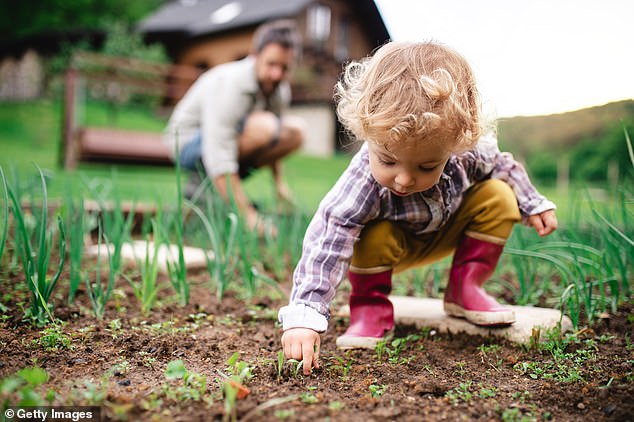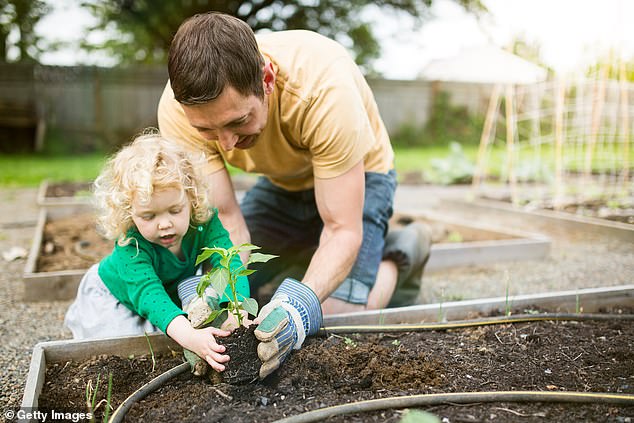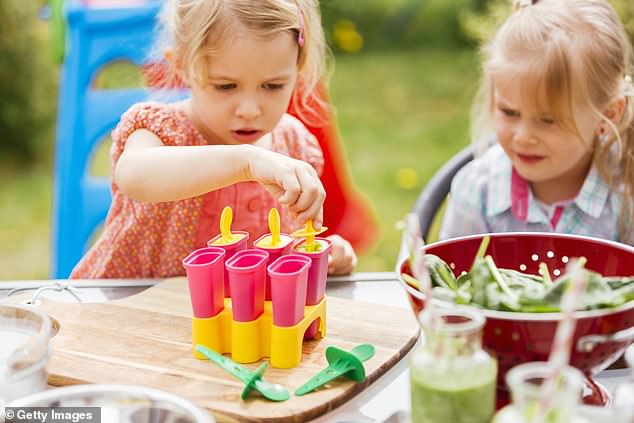Experts have told ministers that children should learn about science by eating ice cream and growing vegetables.
Four leading scientific bodies are lobbying the Government to include fun, real-world experiences as part of the curriculum.
Other suggestions for students ages three to eleven include playing with shadows, digging in the dirt, baking bread, recycling, and playing musical instruments.
They hope to influence Labour’s new curriculum review, led by Professor Becky Francis, which is due to report next year.
The Royal Society of Chemistry, the Institute of Physics, the Royal Society of Biology and the Association for Science Education all state that children need to be able to relate concepts to real life.
Experts have told ministers that children should learn about science by eating ice cream and growing vegetables

Other suggestions for students ages three to eleven include playing with shadows, digging in the dirt, baking bread, recycling, and playing musical instruments (stock image)

The Royal Society of Chemistry, the Institute of Physics, the Royal Society of Biology and the Association for Science Education all say children need to be able to relate concepts to real life (stock image)
Those who do not have a garden or the opportunity to participate in a wide range of activities are “undeniably disadvantaged”, they said.
Aylin Ozkan, a policy specialist at the Royal Society of Chemistry, said: ‘One of the recommendations for chemistry is that by the age of 11, all children should start to understand how temperature works and how heating and cooling can change things.
‘What better resource than ice cream for a teacher to explain this?’
Charles Tracy, senior adviser at the Institute of Physics, said: “Many children like to make noise, but harnessing this in the classroom can help teach basic concepts such as pitch and volume.”
Lauren McLeod, director of education policy at the Royal Society of Biology, said: ‘By celebrating green spaces, growing vegetables in the classroom and visiting the local garden centre, children can experience the life cycles of living things and be involved in making healthy and sustainable choices.
“Not all children have access to a garden or school grounds.”
The organisations produced a report stating that revising the curriculum was a “matter of equity” and that offering classroom experiences would help children “draw evidence for their ideas”.
The curriculum review recommendations will be implemented from September 2025.
Yesterday, teachers’ unions said primary schools already used real-world experiences effectively and said the key issue was ensuring enough space in the timetable for science alongside other subjects.

